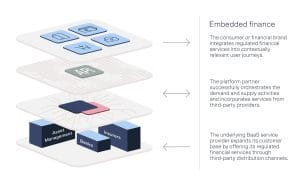historia de éxito
Casa Ley Migrates From Their Old Payment Switch to OmniPayments
Fondo
Casa Ley, a retailer operating multipurpose point-of-sale (POS) terminals, initially relied on HSBC as its acquiring bank to provide and manage these terminals. These terminals served various functions beyond in-store purchases, including topping up cell phones, accepting bank deposits, and facilitating bill payments. In 2000, Casa Ley decided to manage its own POS terminals to gain a negotiating edge for transaction fees, using their old payment switch system on HPE Nonstop servers.
This decision allowed Casa Ley to save significant amounts of money, as transactions were routed directly to issuing banks via their old switch, bypassing the acquiring bank.

El sistema soportaba múltiples servicios e incluso extendía los servicios bancarios a pueblos desatendidos a través de comerciantes locales.
El desafío
A significant challenge arose when their old payment switch announced the sunset of its HPE Nonstop product by the end of 2011, necessitating a migration to their new product offering.
Casa Ley aprovechó esta oportunidad para reconsiderar su enfoque del soporte de terminales de punto de venta. El objetivo de la empresa era incorporar redundancia geográfica para una rápida conmutación por error, ya que las caídas del sistema podían dejar sus tiendas sin efectivo si fallaba el sistema de TPV.
Furthermore, the lack of encryption in communications between stores and their old switch violated PCI DSS standards, which Casa Ley sought to rectify. Additionally, the retailer desired to introduce more customer services via its POS terminals, requiring modifications to all 170 store servers. After evaluating options, Casa Ley selected OmniPayments financial transaction authorization system as a solution to these challenges.
Nuestro enfoque
Casa Ley’s upgrade to OmniPayments brought numerous benefits beyond its initial objectives. The OmniPayments configuration involved two HPE Nonstop servers set up as an active/active system, with one at the retailer’s Mexican headquarters and the other located 500 miles away. Both servers actively processed transactions, sharing the transaction load. In the event of a server failure, all transactions were instantly routed to the surviving server, ensuring continuous transaction authorization services. Transaction logs on both servers were synchronized through bidirectional data replication, eliminating the need for third-party replication tools. Communication services were provided by Telmex, offering quick recovery from server outages measured in seconds. Additionally, OmniPayments introduced the use of the industry-standard ISO 8583 protocol, simplifying communication and improving reliability.
Se simplificaron los procedimientos de atención al cliente, ya que OmniPayments gestionaba todas las funciones de los terminales de punto de venta, incluidos servicios auxiliares como la recarga de teléfonos móviles y los servicios bancarios. Esto permitió estandarizar y simplificar los procedimientos de los dependientes, mejorando la experiencia del cliente. OmniPayments también cumplió la normativa PCI DSS mediante la encriptación de todas las transmisiones entre los terminales de punto de venta y las redes de autorización. Además, el coste total de propiedad se redujo gracias al ahorro en las tasas de licencia en comparación con el sistema anterior, que se basaba en las tasas de transacción. Opsol se comprometió a prestar asistencia para el sistema OmniPayments durante la implantación y el despliegue, sin cobrar por ello ninguna tarifa diaria.
Éxito
La actualización de Casa Ley a OmniPayments reportó importantes beneficios. El minorista consiguió una disponibilidad continua de su sistema de autorización de transacciones, garantizando una rápida recuperación ante cualquier fallo, incluidas las interrupciones del centro de datos, en cuestión de segundos. Cumplió con la norma PCI DSS al implementar el cifrado para todo el tráfico de transacciones. OmniPayments introdujo mejores protocolos de comunicación estándar del sector, simplificando y agilizando la comunicación entre el dependiente y el cliente. El resultado fue una experiencia del cliente más eficaz y positiva.
The retailer also reduced its licensing costs compared to the previous system, thanks to OmniPayments’ pricing model based on the number of HPE Nonstop processors used in the OmniPayments servers. OmniPayments, specializing in HPE Nonstop mission-critical applications, supported the implementation and offered a range of security functions, including encryption-at-rest and encryption-in-flight. OmniPayments operated around the clock, with no downtime required for maintenance or upgrades, and provided support for various disaster-recovery solutions. Overall, the transition to OmniPayments was a success for Casa Ley, delivering improved performance, compliance, and cost savings.






